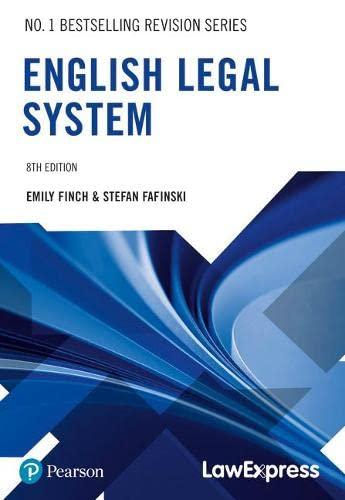Question
The Supreme Court Just Protected Your Right to Facebook A registered sex offender has just become the world's most unlikely free speech crusader. ISSIE LAPOWSKY
The Supreme Court Just Protected Your Right to Facebook
A registered sex offender has just become the world's most unlikely free speech crusader.
ISSIE LAPOWSKY BUSINESS 06.19.2017 04:58 PM
LESTER PACKINGHAM JR. is perhaps the world's most unsympathetic free speech crusader. The registered sex offender pled guilty in 2002 to having sex with a 13-year-old girl when he was 21 years old. But in 2010, after the state of North Carolina banned Packingham from using Facebook, under a law that prohibits sex offenders in the state from using a wide swath of the internet, he decided to fight back, arguing that the ban violated his First Amendment rights.
Today, the Supreme Court unanimously decided that Packingham was right. "Foreclosing access to social media altogether thus prevents users from engaging in the legitimate exercise of First Amendment rights," reads Justice Anthony Kennedy's opinion. "Even convicted criminalsand in some instances especially convicted criminalsmight receive legitimate benefits from these means for access to the world of ideas, particularly if they seek to reform and to pursue lawful and rewarding lives."
The decision, Justice Kennedy acknowledges, is "one of the first cases the Court has taken to address the relationship between the First Amendment and the modern internet." It's a relationship that is being consistently tested, as people not only increasingly rely on social media as a core communication channel but also as courts begin using the things they say and do online against them. Packingham v. North Carolina, at least, establishes that the government can't just uniformly bar people from using expansive chunks of the internet.
"The Supreme Court appropriately understood the importance of the internet to the way politics and free expression occur right now," says Neil Richards, a professor at Washington University Law School, who specializes in First Amendment law. "We cannot have a functioning First Amendment that doesn't take First Amendment activity in a digital context into account."
That's not to say that governments can't narrowly restrict certain classes of criminals from engaging in certain behaviors online. The court's opinion finds that states can, for instance, bar sex offenders from contacting minors online or, as the court puts it, "conduct that often presages a sexual crime." But Kennedy and his fellow justices argue that the North Carolina law, which banned Packingham and others like him from so much as having a Facebook profile, is overly broad in its restrictions.
"The statute here enacts a prohibition unprecedented in the scope of First Amendment speech it burdens," the opinion reads.
In Packingham's case, it was a Facebook post celebrating a waived parking ticket that got him in trouble with the North Carolina statute. That post, which read in part, "Praise be to GOD, WOW!" had nothing to do with minors. But because people ages 13 and above use Facebook, it is one of many online platforms that the North Carolina statute bans sex offenders from using; others include LinkedIn and The Washington Post, which is banned because it has a comment section.
"This decision doesn't say there's an absolute constitutional right to access Facebook," Richards says. "It says the rather blunt and ham-fisted means that North Carolina took didn't bear enough relationship to the interests they were trying to advance."
While the court's decision may set certain parameters for governments looking to restrict people's online access, it has no bearing on what companies like Facebook and Twitter can do. As private companies, they are already free to ban anyone who violates their terms of service, whether by posting sexually explicit content or engaging in terrorist activity. They could also, in theory, ban certain classes of felons from using the platform without fear of being sued for discrimination. Discrimination law in the US only prevents businesses from discriminating on the basis of race, color, religion, sex, and national origin.
That means the very platforms which the Supreme Court has said play a critical role in our First Amendment rights still have full authority to censor any person or class of people they want to.
"If we're really concerned about freedom of speech," Richards says, "it means we have to keep paying attention to the decisions these businesses make with respect to the ability of their users to express themselves."
In other words, while courts may have power over the law, it's the rest of us who need to keep the internet's gatekeepers accountable.
Can you assist me with a summary and legal analysis of the case above? for example facts, legal issues and critical analysis? This will assist me in understanding the article above. Thanks!
Step by Step Solution
There are 3 Steps involved in it
Step: 1

Get Instant Access to Expert-Tailored Solutions
See step-by-step solutions with expert insights and AI powered tools for academic success
Step: 2

Step: 3

Ace Your Homework with AI
Get the answers you need in no time with our AI-driven, step-by-step assistance
Get Started


